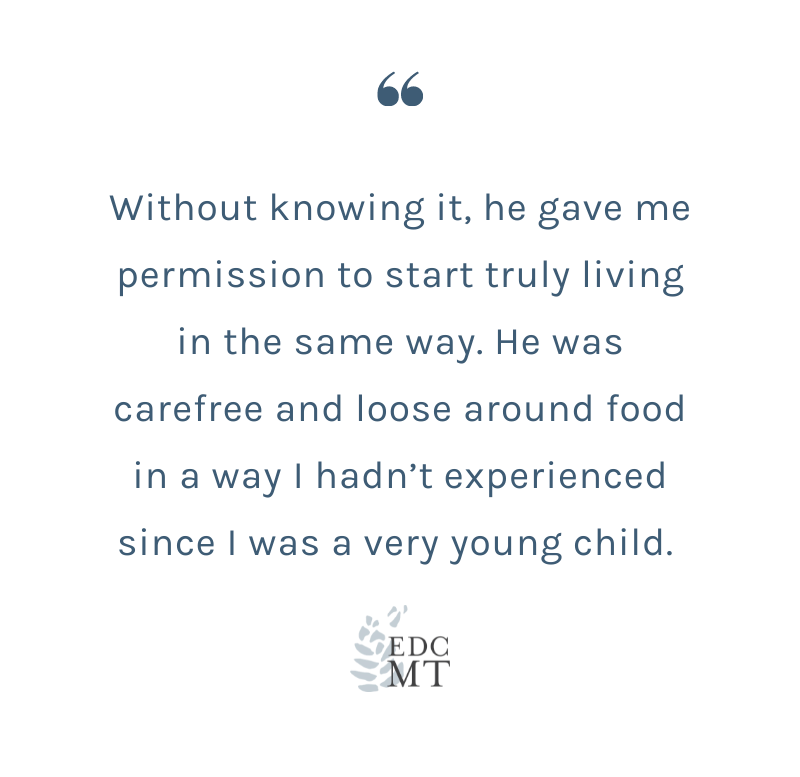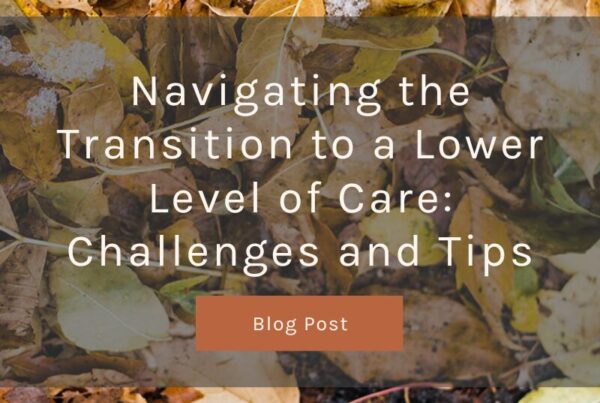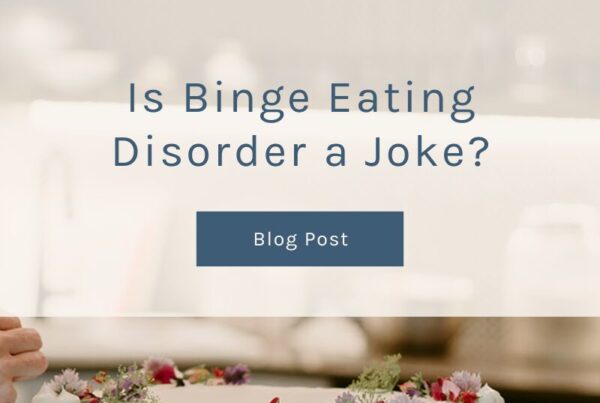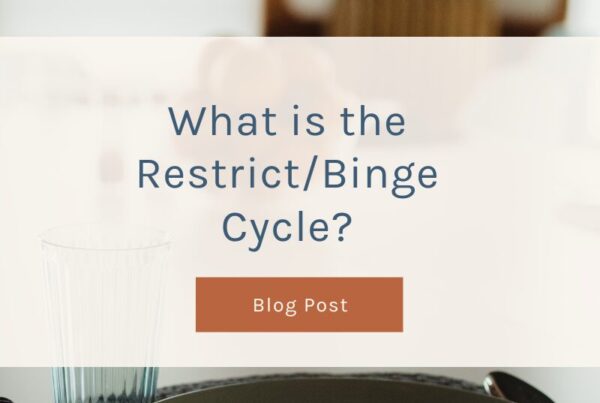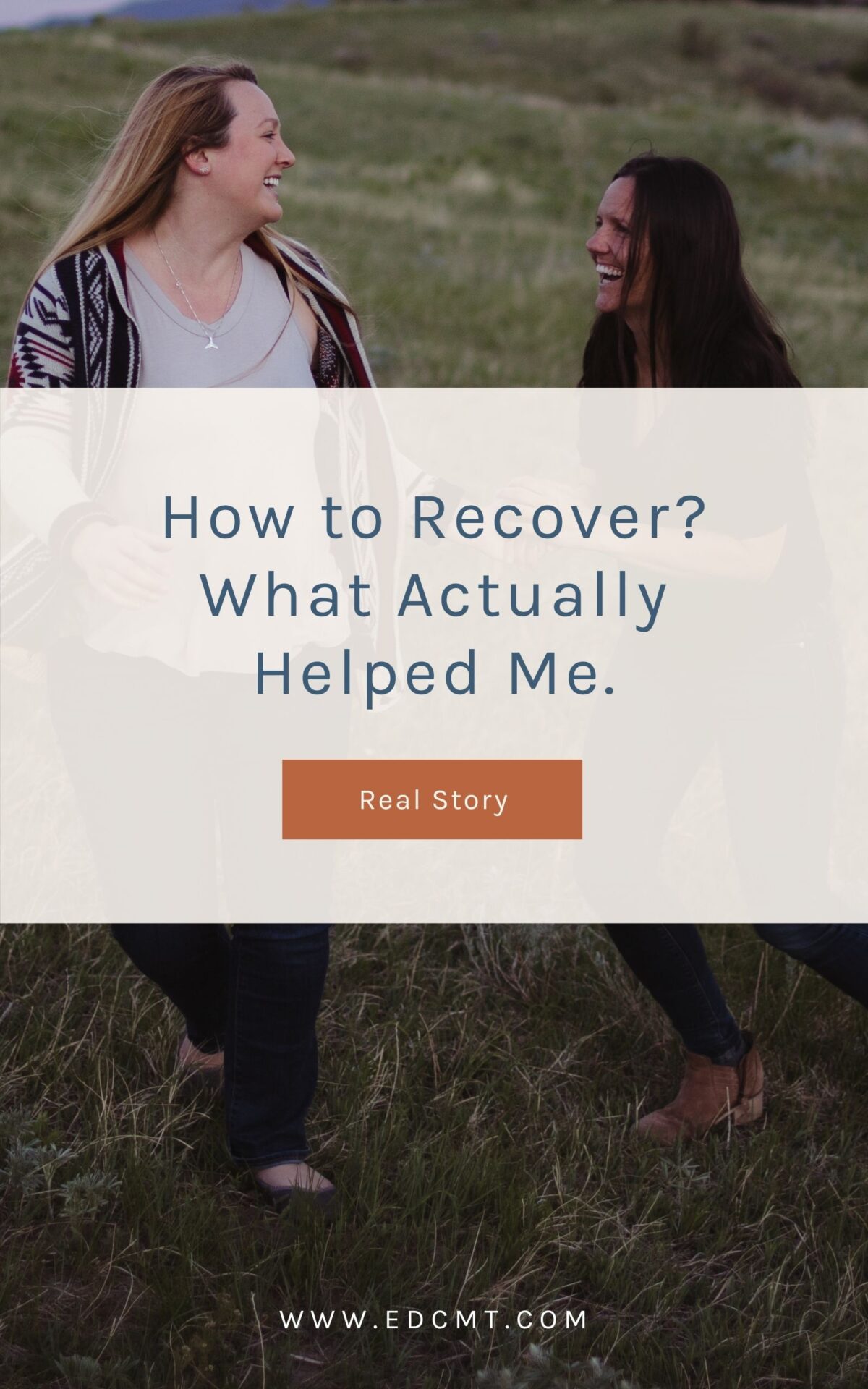
This post, “How to Recover from an Eating Disorder: What Actually Helped Me,” is available to be read or you can listen to the audio version recorded by the author below.
I think almost everyone struggling with an eating disorder wants to be recovered, which isn’t the same thing as saying they want to go through treatment. Recovered means you are better, your eating disorder no longer rules the roost, and the hell you’ve come to expect from your life, the kind you think you can never escape, has seceded and you’ve found yourself living in a full color world again. I wanted that. I wanted it desperately. But I had no idea how hard it would be or what the process of recovery would look like. Healing my relationship with food, body and myself has single handedly been the most difficult journey I’ve taken.
Everyone’s journey toward living in full color is truly unique, this is part of what makes treatment challenging–there is no one size fits all approach or ten step plan you can download from the internet for free. But there are commonalities between everyone who has struggled. Your recovery journey will be unique to you AND someone has always been in your shoes. You are never alone in your experiences.
As I sit here looking back over the years I spent working toward recovery, I wanted to share some of the moments, choices and occurrences that have had a profound impact on my own journey to getting my life back.
This is my own recovery story.
•••••••••••••
1. When a friend said, “I think you have an eating disorder.”
While their delivery could have been better and they likely needed to do a little research into how harrowing eating disorders can be before tossing that one comment across the dinner table, their concern was a much needed catalyst. I had suspected for months that I might have orthorexia, but I believed it wasn’t a big deal and it was my responsibility to fix it. I didn’t think I could truly be sick and deserving of help. I knew that I was the problem and only I could fix that problem. What I know now, is how common this story is with eating disorders and it is the work of places like EDCMT to dispel the myth of ‘sick enough’.
Having an external source, one I considered trustworthy and observant, name my experience out loud was incredibly validating. If this person thought I might have a problem, then maybe it would be ok for me to ask for help. Maybe it wouldn’t be weak or wrong to seek resources.
If you know someone struggling, it’s important to know that these are really difficult conversations to have. While there is advice about how to talk with someone, there is no perfect way to do it. The conversation might not go well, AND you should do it anyways. Eating disorders can be deadly, and even if they never get to that point, living with one at any level is an awful existence. No one deserves that. Many people living full lives now had a loved one speak up as a part of their recovery journey.
2. Asking for help
After my friend wrote me a “permission slip” to seek help, I made a plan to speak with my doctor at my upcoming annual exam. I have a long relationship with my doctor, she knows me, I trust her and I felt safe sharing this shame and secret with her. I’m lucky that while I may not have looked sick (though appearance is not actually a useful diagnostic tool in eating disorder diagnosis), she immediately took me seriously and offered up a recommendation to a registered dietitian (RD) who specializes in eating disorders. It’s important to note, not everyone has this experience, especially if you are in a larger body type, are a person of color or male. Or any demographic outside of thin, young, white females, the group we mistakenly believe to be mainly affected by eating disorders.
At first, it was so freeing to see a RD who knew what I was going through. Suddenly, my deepest shames were reflected back at me as common, as part of the disorder. When I admitted to regularly binging on peanut butter, she said, ‘You wouldn’t believe the number of people who’ve sat where you sat, who’ve said the same thing.’ However, in a relatively short period of time, my progress stunted, and I convinced myself I was on the mend and rationalized saving the money for something else because my insurance did not cover care. Looking back, I don’t think I was truly ready to give up my eating disorder, yet.
3. And then getting help again.
A year later, things were much worse. Daily living was so arduous in subtle, weird ways that weighed on me tremendously but were hard to quantify and explain. My relationship with food was worse than ever even though I had restored weight, had fewer food rules, and I was fueling my body more appropriately. I was miserable, so miserable that I was ready to find help and stick with it this time. I specifically sought out a care provider who was anti-diet and worked in both Health at Every Size and Intuitive Eating frameworks. These newer-to-me frameworks made sense to me and resonated with my values. I wanted to work with someone who got and supported what I was looking for.
This was a really dark time for me. I don’t remember telling many people how badly I was doing out of fear they would think I was making it up. I didn’t look sick or even act sick around others. But I wasn’t ok at all.
4. Changing the media I absorbed.
I fell hard for the wellness diet, even though I didn’t understand that’s what it was at the time. I was obsessed with all the health and wellness Instagram accounts I followed: @Leefromamerica, @shutthekaleup, @onepartplant, The Rich Roll Podcast and so many more like them. I devoured every bit of content they shared from first thing in the morning until bedtime. When I traveled I sought out the ‘health’ spots they went to, I consumed what they consumed. I copied their recipes and healthy hacks in my own kitchen constantly. When they said put cauliflower in my smoothies, I did. But even then, an inner voice began to speak up, a background alarm asking for me to pay attention to what I was doing and why I was doing it. I wasn’t chasing health. I was chasing control and thinness.
Gradually, the Instagram accounts, books and podcasts that had brought me joy began to have the opposite effect–I’d feel triggered, upset, not good enough, exhausted. I started unfollowing and putting down books that made me feel like crap.
Once I realized I was struggling with orthorexia and disordered eating I sat down and went through all the accounts I followed. I removed every single one that felt unsafe to me at the time, even if I loved the person and account still. Already, I had started to follow anti-diet dietitians like @hgoodrichrd and @meganmedrano.rd, who served up the truths about diet culture I needed to learn and hear. I replaced health and wellness culture with people who knew about eating disorders, health at every size and intuitive eating. Those new-to-me accounts provided so much encouragement and validation of my experiences. I sincerely believed they helped my recovery tremendously.
5. Knowing one person in real life who truly had a healthy relationship with food.
As recovery was truly starting to take hold for me, I briefly dated this tremendous athlete who ate all foods and never spoke or reverted to moralizing language when talking about food, ie. good or bad, healthy or unhealthy. He got McDonald’s after a late flight because he was hungry and that’s what was available – without any guilt or shame or comments about compromised training. He threw broccoli into his lasagna because it’s what he had on hand, not in pursuit of ‘healthifying’ the lasagna. He unapologetically loved dessert. While our relationship did not work out, he served as a model of what it could be like to just eat food and move on with your day without stress, worry and anxiety. Without knowing it, he gave me permission to start truly living in the same way. He was carefree and loose around food in a way I hadn’t experienced since I was a very young child.
6. Time. Lots of it. More than I expected or hoped for.
I feel annoying including time on this list, because you can’t really implement or make an action plan around time. What time asks of us, is that we surrender to it and sit with it, that we embrace the unknown and trust that, given time, things will change. That we will feel, be, and live differently. This has been true for me with every great struggle in my life and especially so in my eating disorder recovery. Time has been one of the single most important pieces to my healing and one of the most inconvenient and hard to grapple with. But, you need to know that you too will need time and that however long it takes you, there is nothing wrong with you or your recovery.
7. Letting go of the body I thought I should have and making space for the one I do.
This was quite possibly the hardest part and a part that still stings more than I want to admit. I just can’t seem to let go of the notion that my body is deficient for not being smaller even though I don’t extend this same thinking to the variety of bodies I see in the world anymore. Self compassion and acceptance might be lifelong journeys for me.
I still wish my body was different at times, but now I’ve done enough mental and emotional work and built up a solid tool belt for dealing with disordered thoughts and feelings, that I’m unwilling to do anything to try and mold my body to meet those disordered thoughts and feelings. Those are nonnegotiable for me. I hope that with more and more time, I can let go of the false belief that my body is deficient. But that doesn’t mean I’m not fully in recovery. Recovery isn’t some perfect place where everything is resolved and better. As humans, all of us are always working through certain things, and some of them we’ll be playing with and learning about for years, decades, or our lifetime. That doesn’t mean they don’t get better and easier, it’s just that they’re not things we have to fix in order to be present and able to live fully now.
•••••••••••••
I think that we don’t often see these granular but profound moments of recovery. The timeline is usually written as “sick, struggle, get help, healed”, but the path is so full of twists and turns, moments of sadness and joy, and of fear and strength. And all of those sections of the path tend to overlap and intersect. Perhaps you are on this path, and are not sure what is next, or you just received your first “permission slip” to ask for help, or have been feeling like there are some Instagram accounts you might want to unfollow, but you’re just not sure if that’s the right next step or if it will even help. The thing is there are often a lot of right next steps and eventually all of it, from the tiniest of steps forward to the biggest wins, make a difference. Even just reading this, I can promise you, is another step in the right direction.
Thinking of you and believing in you and your own unique journey.
Tori
If you need help to recover from an eating disorder, EDCMT is here for you. Contact us today.

